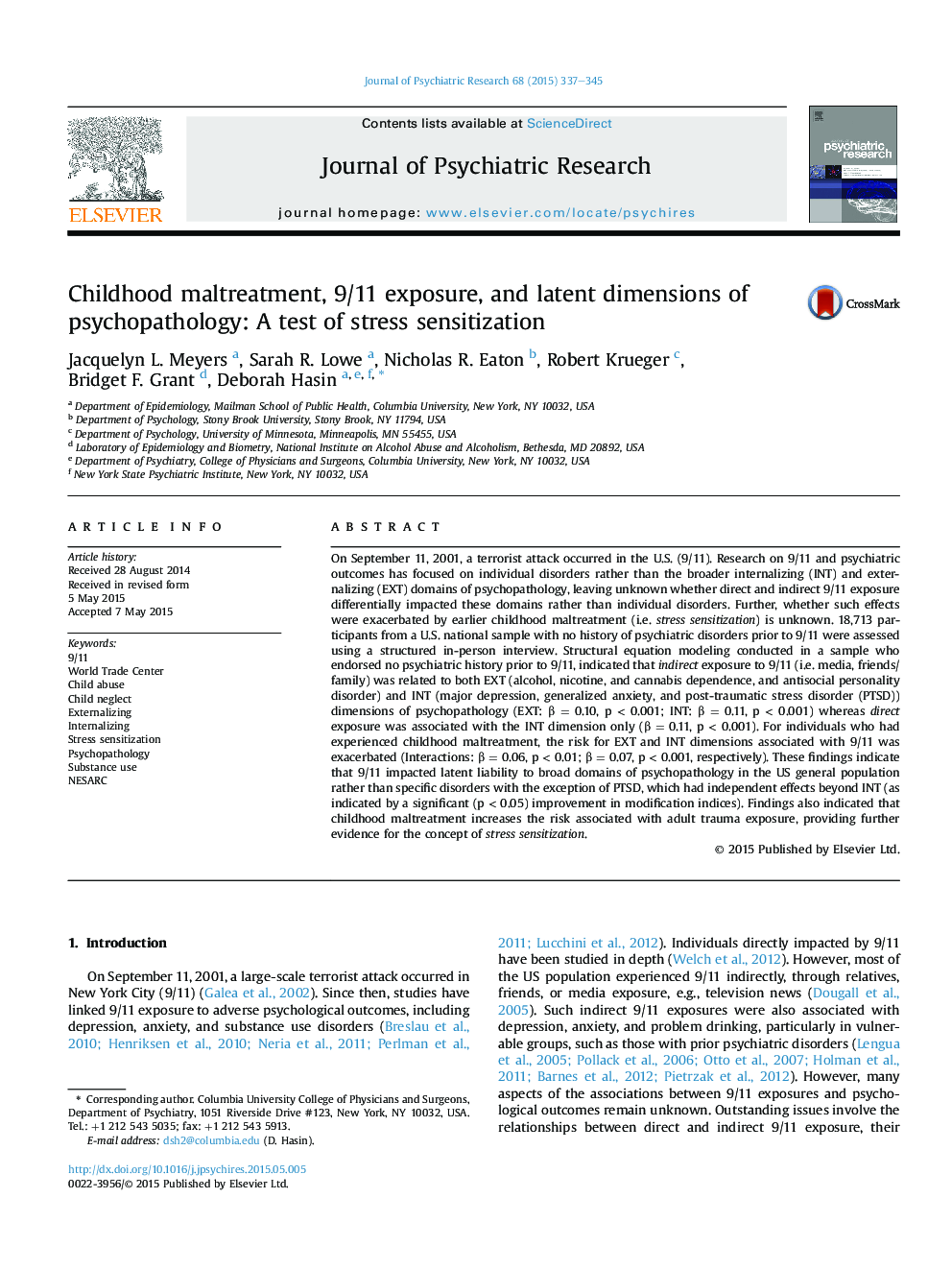| Article ID | Journal | Published Year | Pages | File Type |
|---|---|---|---|---|
| 6800569 | Journal of Psychiatric Research | 2015 | 9 Pages |
Abstract
On September 11, 2001, a terrorist attack occurred in the U.S. (9/11). Research on 9/11 and psychiatric outcomes has focused on individual disorders rather than the broader internalizing (INT) and externalizing (EXT) domains of psychopathology, leaving unknown whether direct and indirect 9/11 exposure differentially impacted these domains rather than individual disorders. Further, whether such effects were exacerbated by earlier childhood maltreatment (i.e. stress sensitization) is unknown. 18,713 participants from a U.S. national sample with no history of psychiatric disorders prior to 9/11 were assessed using a structured in-person interview. Structural equation modeling conducted in a sample who endorsed no psychiatric history prior to 9/11, indicated that indirect exposure to 9/11 (i.e. media, friends/family) was related to both EXT (alcohol, nicotine, and cannabis dependence, and antisocial personality disorder) and INT (major depression, generalized anxiety, and post-traumatic stress disorder (PTSD)) dimensions of psychopathology (EXT: β = 0.10, p < 0.001; INT: β = 0.11, p < 0.001) whereas direct exposure was associated with the INT dimension only (β = 0.11, p < 0.001). For individuals who had experienced childhood maltreatment, the risk for EXT and INT dimensions associated with 9/11 was exacerbated (Interactions: β = 0.06, p < 0.01; β = 0.07, p < 0.001, respectively). These findings indicate that 9/11 impacted latent liability to broad domains of psychopathology in the US general population rather than specific disorders with the exception of PTSD, which had independent effects beyond INT (as indicated by a significant (p < 0.05) improvement in modification indices). Findings also indicated that childhood maltreatment increases the risk associated with adult trauma exposure, providing further evidence for the concept of stress sensitization.
Keywords
Related Topics
Life Sciences
Neuroscience
Biological Psychiatry
Authors
Jacquelyn L. Meyers, Sarah R. Lowe, Nicholas R. Eaton, Robert Krueger, Bridget F. Grant, Deborah Hasin,
